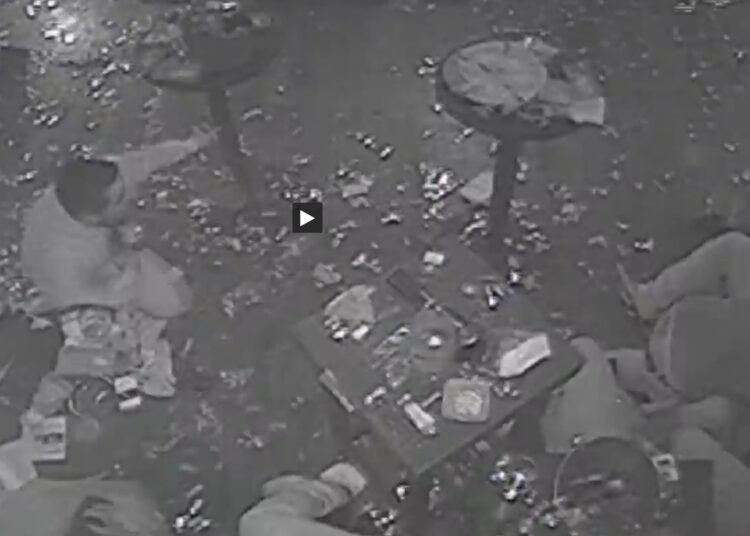Abdullah Bozkurt/Stockholm
Turkish intelligence was aware of ISIS safe houses in Turkey harboring terrorists, including 42-year-old Abdulkadir Masharipov (aka Abu Mohammed al-Horasani), who carried out the 2017 Reina nightclub attack in Istanbul that killed 39 people — 10 Turkish citizens and 29 foreigners from countries such as Saudi Arabia, Iraq, Jordan, Syria, Kuwait, India, Lebanon, Israel and Tunisia — and injured dozens, yet failed to take any action.
The prior knowledge of ISIS safe houses by the National Intelligence Organization (Milli İstihbarat Teşkilatı, MIT) was revealed during the trial of 59 suspects, including Masharipov, who faced multiple criminal charges. Immediately following the deadly terrorist attack, police raided 152 safe houses — known as madafas — across various provinces in Turkey, all of which had been previously identified by intelligence as ISIS hideouts.
Why those safe houses were allowed to operate, and why no ISIS suspects involved in planning, aiding or abetting the attack were detained before the New Year’s attack, were never questioned by the investigating prosecutor during the probe, nor were these issues raised by the panel of judges during the trial, despite their authority to demand explanations from the intelligence service and hold it accountable.
When some victims and family members of the deceased raised the possibility of a deliberate security vacuum and accomplices within the Turkish police and intelligence, their concerns were quickly dismissed by presiding judge Abdurrahman Orkun Dağ, who declared such remarks to be red lines in the hearings.
Masharipov, an ethnic Tajik and Uzbek citizen, fled Uzbekistan in 2011 after coming under suspicion by local authorities for alleged ties to jihadist networks. He then settled in Russia, where he married Zarina Nurullayeva a year later. Shortly afterward, the couple embarked on a years-long journey through multiple conflict zones, aiming to join militant Islamist groups.
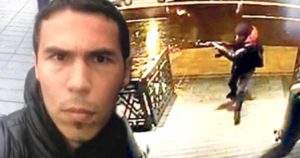
According to the investigation case file, Masharipov and his wife first traveled to Nimruz, Iran, before illegally crossing into Waziristan, a tribal region on the Afghanistan-Pakistan border. There, he initially joined the Islamic Movement of Uzbekistan (IMU), a jihadist group aiming to overthrow the Uzbek government and establish an Islamic caliphate in Central Asia. He later pledged allegiance to Abu Sayir al-Turki — most likely a nom de guerre — and leader of the Islamic Jihad Union (IJU), an IMU offshoot aligned with al-Qaeda.
In Waziristan, Masharipov underwent extensive religious, political and combat training and participated in armed clashes and terrorist operations targeting Pakistani military forces. He later applied these skills in the cold-blooded mass killings during the Reina nightclub attack.
In 2014, he formally pledged allegiance to ISIS by declaring his loyalty to a high-ranking militant commander. Following this declaration, Masharipov was instructed to relocate with his wife to Saravan, Iran, where they spent nearly a year attempting to reach the war zones in Syria. Unable to enter Syria from Iran, he eventually crossed into Turkey via Van province in January 2016, accompanied by a group of foreign fighters including Afghans, Uyghurs and Chechens.
The couple settled in Istanbul but also lived intermittently in Kayseri and Konya. According to the indictment, 15 days before the Reina attack, Masharipov moved his family from Konya back to Istanbul, where he began preparations for the deadly assault.
The couple lived in a safe house in the conservative district of Başakşehir with their two children — a boy and a girl. They shared the residence with Ilyas Mamosharipov, the second suspect in the case and alleged mastermind behind the attack, and his wife, Marhaba Abduloeva, until the time of the assault.
On January 6, 2017, Masharipov unofficially married a second wife, French national Tene Traore. Traore had flown to Turkey in September 2016 at the urging of her sister, who had already joined ISIS in Syria’s Raqqa. Upon arrival she was greeted by an ISIS handler at the airport and taken to the safe house where Masharipov was staying. The couple had a baby from their brief marriage.

Although Masharipov was convicted and sentenced to life imprisonment, the Supreme Court of Appeals overturned the conviction of his accomplice Mamosharipov, who had been sentenced to 1,432 years in prison, citing a lack of evidence to support the charges.
On December 25, 2016, Masharipov received instructions via Telegram from an ISIS operative known only by the code name Abu Shohada to carry out an armed attack in Istanbul on New Year’s Eve. The following day, he met with another ISIS operative, Davronbek Mirzashev, at a bus stop, where he was given detailed instructions on how to execute the attack using an AK-47 rifle and hand grenades. He was instructed to remain isolated, provided with money to stay at a hotel instead of a safe house and told to keep his distance from other ISIS members.
During the meeting, Masharipov was also given a flash drive containing a Russian-language audio recording by İslam Atabiev, a Russian national and senior ISIS figure, explaining why and how he should carry out the attack. In the recording Atabiev stated that attacks by ISIS outside Syria are valued more highly than military actions conducted in Syria.
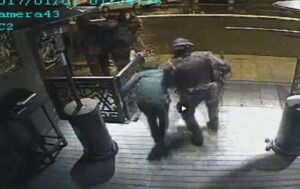
Atabiev glorified martyrdom and urged the recipient to set an example by carrying out attacks in Turkey, claiming that such acts were divinely mandated.
“These unbelievers must be shown that they are not safe anywhere,” the speaker says in the recording. “Let Istanbul not be a safe haven. Let them know they cannot kill Muslims, bomb children and women and go unpunished,” he said.
Throughout the lengthy message, Atabiev repeatedly referenced the concept of “shahada” (martyrdom), characterizing jihadist violence as an act of religious devotion. The audio stresses urgency, expressing frustration at delays in action and emphasizing that there is “no time” to waste.
Atabiev also drew sharp distinctions between militant fighters in conflict zones like Syria and Muslims living in Turkey, urging the recipient to carry out attacks as a way of proving his loyalty and inspiring others. The message included logistical references, such as plans to bring family members across borders using forged Syrian identities and safe corridors allegedly open for women and children.
On December 27 Masharipov rented a place to stay in isolation but broke the rules by returning to the safe house in the Kayaşehir neighborhood of Başakşehir, where his wife and accomplice lived. While at home, his wife recorded a farewell video of him in which he urged his son to follow in his footsteps and become a martyr when he grew up.
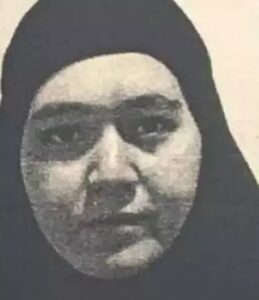
The next day, he made a trip to the Taksim neighborhood, a historic area of the city popular with foreign tourists. There, he scouted the location while pretending to take selfies with his phone to plan the attack.
On December 29, Mirzashev visited Masharipov’s rented residence to deliver a bag containing an AK-47, ammunition and flashbang grenades, which Masharipov was led to believe were real explosives rather than stun devices. On the evening of December 31, he took a cab to Taksim but was unable to enter the neighborhood due to police checkpoints blocking all access routes.
After briefing his handler, Yasser Mohammed Salem Radown (aka Abu Jihad), via Telegram about the situation, Masharipov was sent photos of two targets: the office of the ultra-nationalist Cumhuriyet newspaper in Istanbul’s Şişli district, which had previously published material deemed insulting to the Prophet Muhammad, and an entertainment venue called the Reina Disco Club. His handler instructed him to conduct reconnaissance at Reina since the newspaper office was likely closed due to New Year’s Eve.
Following the instructions, Masharipov took a taxi from Istanbul’s Zeytinburnu district to the designated venue without carrying any weapons. After observing the site for about five minutes and reportedly noticing no police presence, he decided to proceed with the attack.
Detailed information about the venue’s layout and interior photos were provided by ISIS in advance, indicating that the terrorist organization had an established intelligence network in Turkey and prior knowledge of the club. This was further confirmed by CCTV footage. Masharipov was familiar with the dark, labyrinthine interior of Reina, moving through the venue with ease — ascending stairs as if in his own home, accessing the garden area and freely navigating between different sections, including the main hall.

After his arrest, he told the police, “Once it was confirmed that we would carry out the attack, the emir I was in contact with in Raqqa sent me footage from inside Reina. I watched this footage repeatedly. After thoroughly memorizing the interior layout, I went to Zeytinburnu to collect the weapon, returned and launched the attack.”
After completing his own brief surveillance, Masharipov returned to Zeytinburnu by taxi and contacted the ISIS operative via Telegram, requesting that bags containing weapons and ammunition be delivered to him at a location without security cameras. He also asked for the GPS coordinates of the drop-off point.
After receiving instructions via the Telegram app, Masharipov arrived at a designated location in Istanbul’s Zeytinburnu district, where he met with another ISIS operative. There, he was handed two bags — one containing firearms and ammunition, the other a ready-to-fire AK-47 assault rifle equipped with taped double magazines. At around 23:45 on December 31, 2016, Masharipov took a cab and was dropped off approximately 10 meters from the Reina nightclub, located in the Ortaköy neighborhood.
ISIS was aware that commercial taxis were not typically searched by police in areas frequented by tourists. As a result, instead of obtaining a private or stolen vehicle, Masharipov was advised to use cabs for his movements. It remains unclear why Turkish authorities did not increase security around Reina, Istanbul’s most popular entertainment venue with foreigners.
In fact, a US Embassy warning issued in September 2016 advised Americans to avoid crowded venues due to credible terrorist threats. On December 23, the US mission in Turkey again warned American citizens about possible attacks by extremist groups across the country, urging caution when attending holiday and New Year’s Eve gatherings.
Citing these warnings, Reina’s owner, Mehmet Koçarslan, stated that intelligence had implied that the club could be a potential target and criticized the Turkish government for lax security measures prior to the attack. He suggested that certain groups within the security apparatus may have been negligent, creating a significant security vulnerability.
Apparently, both Masharipov and the ISIS intelligence network noticed the lax security around the club. The gunman put three flashbang grenades in his jacket pockets, slung a backpack full of loaded magazines over his shoulders and took the assault rifle in hand before running toward the nightclub entrance.
According to CCTV footage, Masharipov began firing at 01:18:12 am on January 1. He first shot killed police officer Burak Yıldız, who was stationed outside, followed by an unarmed security guard at the entrance. Once inside, he opened fire on the crowd celebrating the New Year, moving through different sections of the club and continuing to shoot patrons.
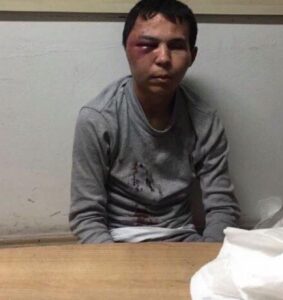
He also used flashbang grenades to disorient the crowd, throwing one before switching to a fresh double magazine from his backpack. As people panicked from the blinding light and deafening noise, he resumed firing into the crowd, targeting even those already wounded or lying on the ground. After emptying another magazine, he threw a second flashbang into a group attempting to flee before loading his final set of bullets.
He spent five to six minutes inside the club, enough time to kill dozens. Forensic analysis revealed that the attacker used armor-piercing steel-core bullets, designed for use against lightly armored vehicles, which significantly increased the lethality of the attack. These rounds could injure or kill multiple people with a single shot when fired into a densely packed crowd.
After expending all his ammunition, Masharipov removed his jacket and, in an apparent suicide attempt, pulled the pin on his final grenade and held it close to his face as it detonated. Believing it to be an explosive grenade rather than a flashbang, he later told investigators, “I saved the last grenade for martyrdom and held it close to my face so my body wouldn’t be recognizable.”
The blast left Masharipov with injuries to his hand, burns on his face and hair and damage to his eyebrows and eyelashes. Realizing he had survived, he calmly walked toward the exit, posing as one of the wounded. Near the doorway, he lay down and began crawling, feigning serious injury.
When special forces police arrived at the scene, they allegedly mistook Masharipov for a victim and helped him to the sidewalk. CCTV footage from the club shows a special forces officer escorting him outside, then leaving him alone before returning inside. Seizing the opportunity, the attacker limped away from the area, still feigning injury.
Although plainclothes officers briefly stopped him and asked what had happened inside, they let him go after he claimed to be a victim. The police neither identified nor frisked him.
Black residue from the flashbang grenade covered his face, he had only a few lira in his pocket and he spoke very limited Turkish, all of which raised suspicion. Two taxi drivers refused to take him from the perimeter of the shooting site, and a third agreed to drive him only a short distance. He finally managed to persuade a fourth driver to take him to a restaurant in Zeytinburnu, where he borrowed cab fare from a Uyghur man.
Unable to communicate with his handler in Syria immediately after the attack due to Turkish authorities restricting access to the Telegram app, Masharipov remained silent through the night. When access was restored the following morning, he messaged his handler to confirm he was alive and urgently requested a new hiding place.
ISIS affiliates responded quickly: A Uyghur courier was dispatched to pick up Masharipov from the restaurant café where he had spent the night, relocating him first to a safe house in Istanbul’s Zeytinburnu district and later to another in the Sefaköy neighborhood. Meanwhile, both of his wives were moved to separate safe locations, and his 4-year-old son Muhammed was taken by Mirzashev to an undisclosed location.

On January 3 Masharipov and two ISIS accomplices were en route to a new safe location when their vehicle was stopped at a routine police checkpoint on the E-5 Highway. One of the officers recognized Masharipov from the CCTV photo released to the public. As the police closed in, Masharipov drew a pistol and opened fire. Amid the chaos, the vehicle managed to flee the scene, aided by the police’s failure to block the main bridge, allowing the suspects to escape.
He remained in hiding at an ISIS safe house in Istanbul’s Esenyurt district until his eventual arrest on January 16, 2017, along with an Iraqi ISIS operative and three women.
During his interrogation Masharipov admitted to being a member of ISIS and said his motivation for the attack was revenge for what he believed were killings committed by Christians around the world. He said he deliberately chose New Year’s Eve — a day he associated with Christian celebration — as the timing for the assault, with the explicit goal of targeting and killing Christians. He further emphasized that he had no quarrel with Turkey itself and that his only intended victims were Christians.
During his arraignment on February 14, 2017, Masharipov stated, “They say I’m working against Turkey, against the Turkish state. But I don’t think I’ve done anything against the Turkish state. I haven’t taken part in any anti-Turkey operations. I took revenge, and I don’t regret what I did. I believe I carried out retribution against Christians.”
In his communication with his ISIS commander in Syria before accepting the mission, Masharipov asked whether Turks celebrate Christmas, to which the commander replied no. This suggests that Masharipov believed the club’s attendees were not Turks or Muslims. Some Muslims conflate New Year’s Eve (December 31) with Christmas (December 25), which is a Christian religious holiday. This confusion leads to the false belief that any end-of-year celebration is a form of participating in Christian religious rituals, which is not the case for New Year’s Eve. Masharipov was similarly confused and incorrectly interpreted New Year’s Eve celebrations as a Christian ritual.
When questioned about why he shot the police officer stationed outside the club, he claimed that the officer fired first, forcing him to respond in order to gain entry.
The public prosecutor indicted 57 suspects in the case. Although 51 were initially held in pretrial detention, the number of detainees quickly dropped to 18 after the court ordered the release of the majority of suspects, including Masharipov’s wives.
Mirzashev remained at large until January 29, 2020, when he was captured during a police crackdown on ISIS’s financial network.

Masharipov faced multiple charges, including attempting to overthrow the constitutional order, membership in an armed terrorist organization, premeditated mass murder and illegal possession of military-grade firearms and ammunition.
At the first hearing on December 11, 2017, Masharipov refused to testify. When he finally agreed to speak during a closed session on February 28, 2018, he talked for three hours. No information about the content of his statement was made public.
On September 7, 2020, the Istanbul 27th High Criminal Court convicted Masharipov and sentenced him to multiple aggravated life sentences for killing 39 people and injuring 79 others. The Supreme Court of Appeals upheld the conviction in January 2025. However, the appeals court overturned the sentence of his accomplice, Mamasharipov, who had been convicted of aiding in the violation of the constitution, aiding in the premeditated murder of 39 people and aiding in the attempted murder of 79 others.
Claiming insufficient evidence, the appeals court also overturned the convictions of 11 other ISIS members, who had been sentenced to various prison terms by the lower court.
Two police officers, identified only as Akif A. and Süleyman G., who responded to the scene and helped Masharipov exit the venue, were charged with dereliction of duty for failing to check his identity and search him but were acquitted by Istanbul’s 42nd Court of First Instance in May 2019.
Overall, some suspects were acquitted and others convicted, while about a dozen remain fugitives or unidentified co-conspirators. Those who were indicted include Celil Çelik, İrfan Taşkan, Muhammed Fatih Ebul Hasan, Zhakhongir İsakov, Abulaiti Halike, Akhmed Gaituikev, İlyas Aydın, Yunuscan Türkistanlı, İsa Gül, İslam Atabiev, Yusuf Nasır, Usman Sabirov, Khushnudbek Fazlıdınnov, Ayşa Yamin, Avazbek Adiljanov, Dina Alaa Eid Sayed Ahmed, Aysha Muhammed, Ali Jameel Mohammed, Abdurrauf Sert, Omer Asim, Mehmet Ekenler, Abuliezi Abuduhamiti, Marhaba Abduloeva, Ibrahimjon Asparov, Eyyüp Korkusuz, Tene Traore, Abdu Mehmet Aziz, Abdulkeremu Maımaıtıabudula, Abduweli Yasin, Adili Salimu, İslam Magomedov, Ali Maimaitimin, Duolaiti Maimaitiali, Gulsaya Tlegenova, Khikmatillo Zokirov, Maierdan Tuersun, Nurmuhammed Mamat, Olimjon Akhralov, Rakhnamo Zaidzhankizi, Samed Ehed, Umid Mirzaulugov, Yasin Mehmet, Firuze Kasım, Bakhtiiar Abdurashidov, Matitibake Tusunmaimaiti, Maimaiti Jumainiyazi, Sabri Benthabet, Tuersung Xianmixiding, Abdullah Türkistanlı, Zarina Nurullayeva, Kulaixi Yimaier, Tulpar, Haku, Mustafa Darsun, Ebu Halid and Muhammed Abdullah.
However, the Turkish government has never investigated intelligence agency MIT for failing to act on ISIS safe houses or for not pursuing a crackdown on known ISIS operatives who aided and abetted Masharipov in carrying out the deadly attack.
In the meantime, the Reina nightclub was demolished on May 22, 2017, by order of the Istanbul Municipality Board, which cited illegal construction violations in parts of the building. On March 14, 2024, the Istanbul 2nd Commercial Court declared the club’s operator, Antik Turizm Sanayi ve Dış Ticaret A.Ş., bankrupt due to outstanding labor-related debts totaling approximately 3 million Turkish lira.

